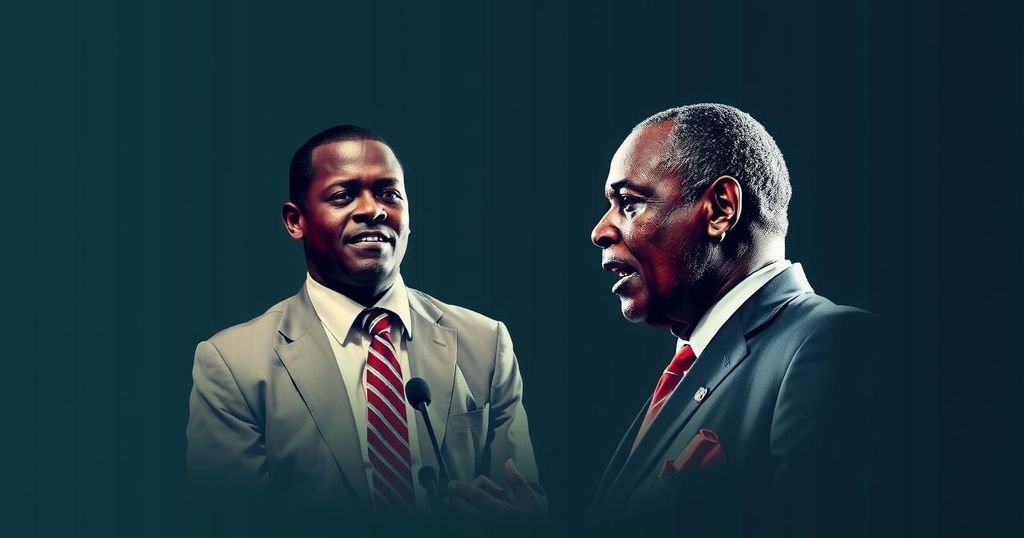Botswana’s ruling party, the BDP, has lost its parliamentary majority after 58 years in power, as the UDC coalition, led by Duma Boko, emerged victorious in the recent elections. Factors contributing to this change include high unemployment and economic dissatisfaction, particularly among young citizens. President Mokgweetsi Masisi acknowledged the electoral defeat, and analysts have viewed this election outcome as a harbinger of challenges for long-dominant political parties in the region.
Botswana’s ruling political party, the Botswana Democratic Party (BDP), has faced a historic defeat in the recent parliamentary elections, which concluded on a pivotal Friday. President Mokgweetsi Masisi conceded defeat as preliminary reports indicated that his party had lost its parliamentary majority by a remarkable margin. The opposition coalition, known as the Umbrella for Democratic Change (UDC), emerged significantly ahead with its leader, Duma Boko, poised to assume the presidency according to results from over half of the constituencies. Analysts attribute this surprising electoral outcome to growing socio-economic discontent, particularly among the nation’s youth, directing blame towards the BDP’s prolonged rule since Botswana’s independence in 1966. Botswana’s economy, heavily reliant on diamond exports, has faced severe challenges, including a notable downturn in the global diamond market, leading to diminished economic growth and soaring unemployment rates reaching 28%. Current election data revealed that the UDC had secured 26 parliamentary seats out of the 61 contested, while the BDP managed only three. Duma Boko’s campaign focused on critical issues, such as enhancing the minimum wage and expanding social grants. Following the announcement of results, President Masisi remarked, “Although I wanted to stay on as your president, I respect the will of the people and I congratulate the president-elect. I will step aside and I will support the new administration.” The atmosphere in Gaborone remained tranquil with small celebrations from opposition supporters, reflecting a sentiment of hope and change among the populace. A young student, Mpho Mogorosi, expressed, “I did not ever think I would witness this change in my life. The BDP had stayed too long in power and I am proud to be part of the people that removed them for a better Botswana.” This election marks a significant moment for democracy in Botswana, as it coincided with a year of notable electoral shifts within southern Africa, including the African National Congress in South Africa losing its parliamentary majority. Neighboring Namibia is set to conduct elections as well, where the ruling SWAPO party faces substantial opposition. Analysts have cautioned that the electoral outcomes signal a warning to long-standing ruling parties across southern Africa. Zaynab Hoosen of Pangea-Risk noted, “The outcome of Botswana’s elections should serve as a warning to long-time ruling parties across southern Africa and beyond that without economic progress and employment opportunities, political dominance will falter.”
The recent election in Botswana signifies a major political shift in a nation that has been governed by the same party for 58 years. The BDP’s fall from power can be attributed primarily to economic dissatisfaction among the youth, which was exacerbated by financial downturns in the diamond industry. This event mirrors a broader trend in southern Africa, where long-standing ruling parties are increasingly challenged by new opposition movements and public sentiment calling for change.
The significant electoral shift in Botswana reflects the broader socio-economic discontent among the population, particularly the youth, and signals potential changes in governance across southern Africa. The UDC’s ascendance indicates a call for responsive leadership that prioritizes economic growth and employment opportunities, underscoring a pivotal transformation in the political landscape.
Original Source: www.cnn.com






